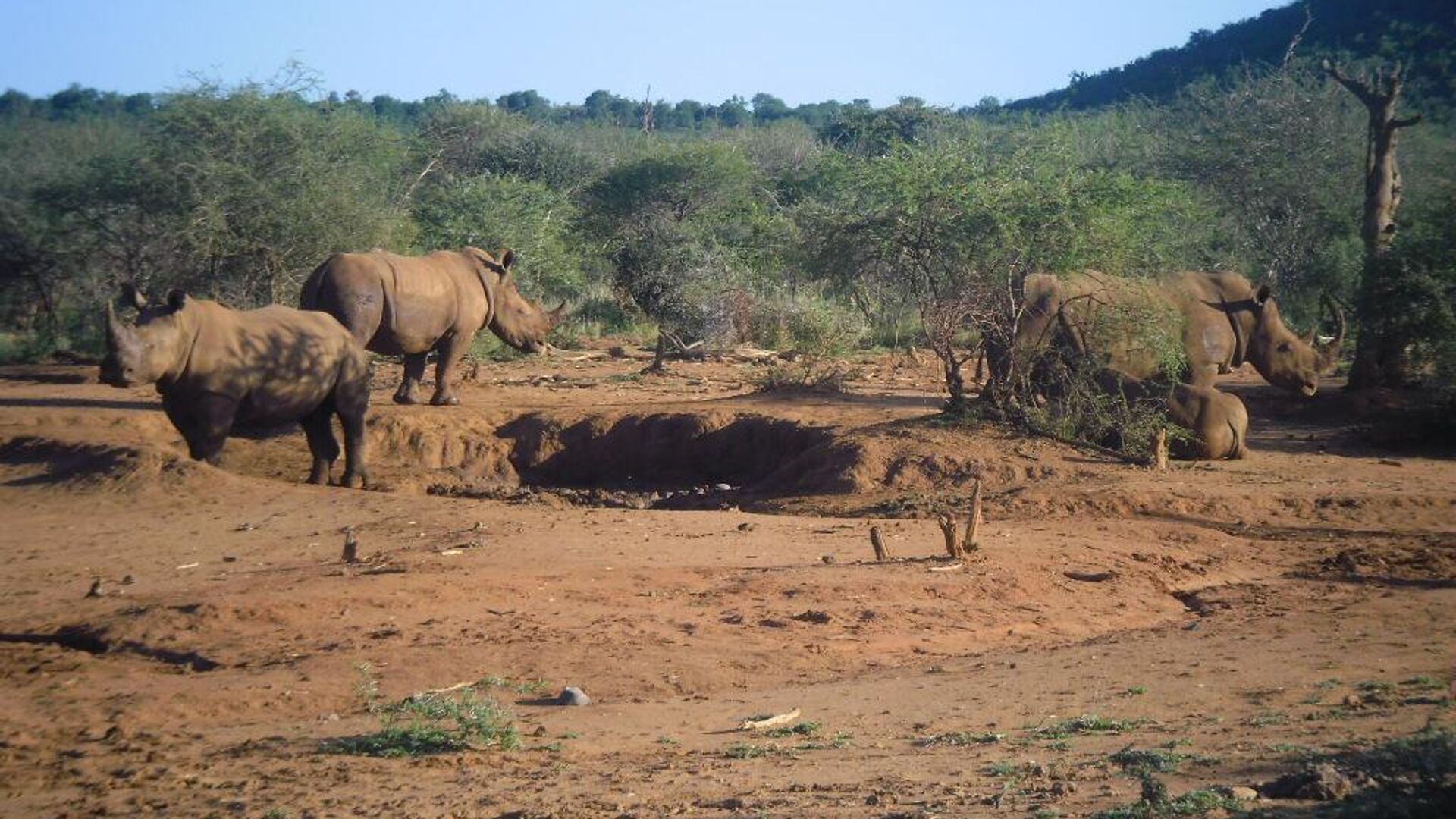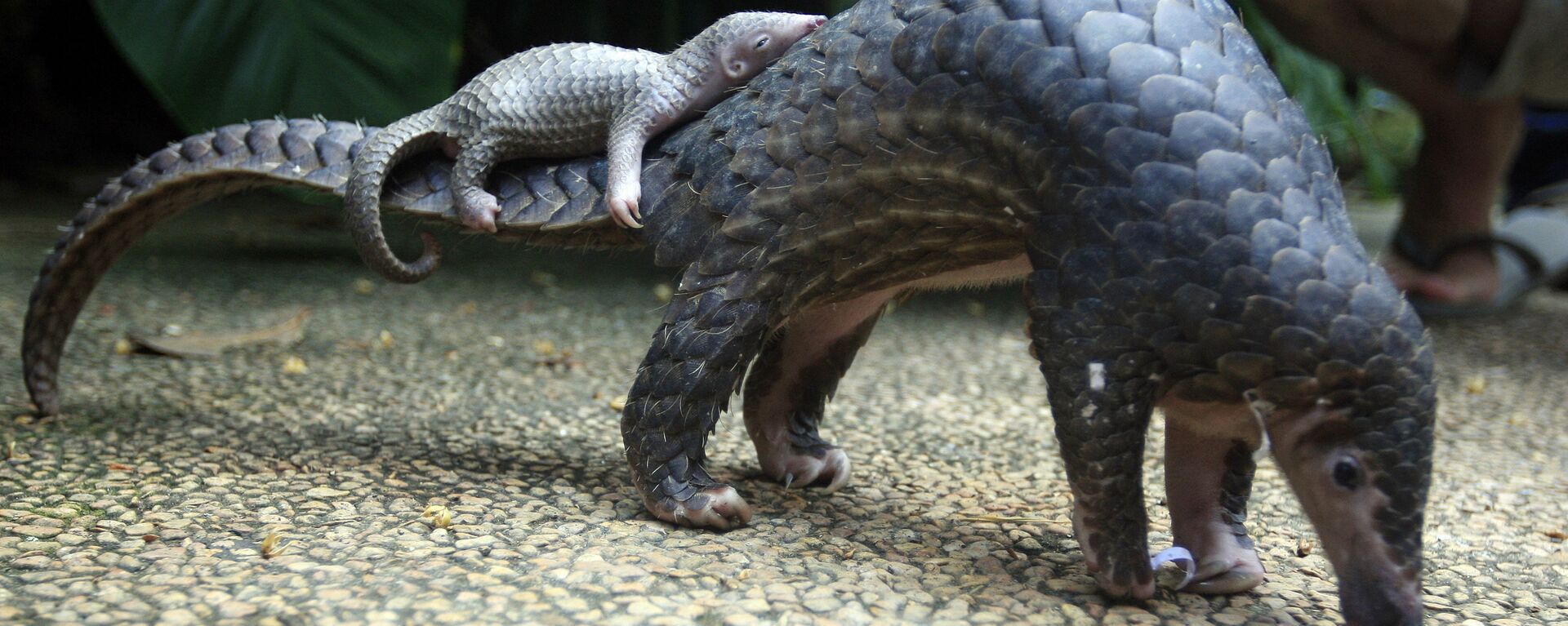https://en.sputniknews.africa/20230905/un-identifies-major-threat-to-planets-biodiversity-1061901919.html
UN Identifies 'Major Threat' to Planet's Biodiversity
UN Identifies 'Major Threat' to Planet's Biodiversity
Sputnik Africa
Biodiversity loss is one of the main ecological challenges that humanity faces these days. The Intergovernmental Platform on Biodiversity and Ecosystem... 05.09.2023, Sputnik Africa
2023-09-05T17:23+0200
2023-09-05T17:23+0200
2023-09-05T17:30+0200
united nations (un)
earth
south africa
southern africa
international
environment
species
endangered species
https://cdn1.img.sputniknews.africa/img/07e7/09/05/1061901749_0:97:1024:673_1920x0_80_0_0_41fe13e8e5b59261ce4d09ac34c86843.jpg
Invasive alien species are a "major threat" to biological diversity of ecosystems on Earth, the United Nations' (UN) Intergovernmental Platform on Biodiversity and Ecosystem Services (IPBES) said in a report published on Monday.Over 37,000 established alien species have been brought by people to different regions of the Earth, with 200 new alien species recorded every year, the report said. Around 3,500 of these species are scientifically proven to have a negative effect on environment around the world.For instance, the spread of invasive alien hyacinth plant water across Lake Victoria in Africa led to the depletion of the fish called tilapia, putting food supplies and local livelihoods at risk, and facilitated the spread of such diseases as dengue fever.According to the study, terrestrial realms, especially temperate and boreal forests and woodlands and cultivated areas (including agricultural land) suffer the most from the invasive species. About 20% of the registered adverse impacts are reported from islands and 25% from aquatic realms, especially from inland surface water and shelf ecosystems.Invasive alien species, along with other factors, are reportedly responsible for 60% of documented global extinction and solely caused 16% of the recorded global plant and animal extinctions.Apart from harmful impact on nature, biological invasions have unfavorable economic implications and negatively influence the people's quality of life, the document emphasized.The IPBES assessment was conducted by 86 experts from 49 countries.In one example of the rising problem of invasive alien species, an environmental group in South Africa reported in April that several red-eared sliders have been found in the country. The reptile is one of the 100 worst invasive species globally, according to the International Union for Conservation of Nature's Invasive Species Specialist Group. The turtles pose a threat to native tortoises, spreading disease and parasites.
https://en.sputniknews.africa/20230521/tip-off-helps-south-african-police-nab-suspect-seeking-to-sell-endangered-pangolin--1059384871.html
earth
south africa
southern africa
Sputnik Africa
feedback@sputniknews.com
+74956456601
MIA „Rossiya Segodnya“
2023
Rasina Musallimova
https://cdn1.img.sputniknews.africa/img/07e7/0a/17/1063019139_0:0:646:646_100x100_80_0_0_348c74b69cf86748a53875f8148a2f85.jpg
Rasina Musallimova
https://cdn1.img.sputniknews.africa/img/07e7/0a/17/1063019139_0:0:646:646_100x100_80_0_0_348c74b69cf86748a53875f8148a2f85.jpg
News
en_EN
Sputnik Africa
feedback@sputniknews.com
+74956456601
MIA „Rossiya Segodnya“
Sputnik Africa
feedback@sputniknews.com
+74956456601
MIA „Rossiya Segodnya“
Rasina Musallimova
https://cdn1.img.sputniknews.africa/img/07e7/0a/17/1063019139_0:0:646:646_100x100_80_0_0_348c74b69cf86748a53875f8148a2f85.jpg
united nations (un), earth, south africa, southern africa, international, environment, species, endangered species
united nations (un), earth, south africa, southern africa, international, environment, species, endangered species
UN Identifies 'Major Threat' to Planet's Biodiversity
17:23 05.09.2023 (Updated: 17:30 05.09.2023) Biodiversity loss is one of the main ecological challenges that humanity faces these days. The Intergovernmental Platform on Biodiversity and Ecosystem Services outlines five threats to biodiversity, namely land and sea-use change, direct exploitation of organisms, climate change, pollution and invasive alien species.
Invasive alien species are a "major threat" to
biological diversity of ecosystems on Earth, the United Nations' (UN) Intergovernmental Platform on Biodiversity and Ecosystem Services (IPBES) said in a
report published on Monday.
"Invasive alien species are a major threat to nature, nature’s contributions to people, and good quality of life. [They] cause dramatic and, in some cases, irreversible changes to biodiversity and ecosystems, resulting in adverse and complex outcomes across all regions of Earth, including local and global species extinctions," the document read.
Over 37,000 established alien species have been brought by people to
different regions of the Earth, with 200 new alien species recorded every year, the report said.
Around 3,500 of these species are scientifically proven to have a negative effect on environment around the world.For instance, the spread of invasive alien hyacinth plant water across Lake Victoria in Africa led to the depletion of the fish called tilapia, putting food supplies and local livelihoods at risk, and facilitated the spread of such diseases as dengue fever.
"In East Africa, management of the invasive alien plant Opuntia spp. (prickly pear) requires repeated weeding by hand, which is often undertaken by women and children and has often become their most time-consuming activity," the report said.
According to the study, terrestrial realms, especially temperate and boreal forests and woodlands and cultivated areas (including agricultural land) suffer the most from the invasive species. About 20% of the registered adverse impacts are reported from islands and 25% from aquatic realms, especially from inland surface water and shelf ecosystems.
Invasive alien species, along with other factors, are reportedly responsible for 60% of documented global extinction and solely caused 16% of the recorded global plant and
animal extinctions.
Apart from harmful impact on nature, biological invasions have unfavorable economic implications and negatively influence the people's quality of life, the document emphasized.
"In 2019, global annual costs of biological invasions were estimated to exceed $423 billion. The vast majority of global costs (92%) accrue from the negative impact of invasive alien species on nature’s contributions to people or on good quality of life, while only 8% of that sum is related to management expenditures of biological invasions," the report underlined.
The IPBES assessment was conducted by 86 experts from 49 countries.
In one example of the rising problem of invasive alien species, an environmental group in South Africa
reported in April that several red-eared sliders have been found in the country. The reptile is one of the 100 worst invasive species globally, according to the International Union for Conservation of Nature's Invasive Species Specialist Group. The turtles pose a threat to native tortoises, spreading disease and parasites.



